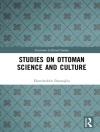During the Cold War, Britain had an astonishing number of contacts and connections with one of the Soviet Bloc’s most hard-line regimes: the German Democratic Republic. The left wing of the British Labour Party and the Trade Unions often had closer ties with communist East Germany than the Communist Party of Great Britain (CPGB). There were strong connections between the East German and British churches, women’s movements, and peace movements; influential conservative politicians and the Communist leadership in the GDR had working relationships; and lucrative contracts existed between business leaders in Britain and their counterparts in East Germany. Based on their extensive knowledge of the documentary sources, the authors provide the first comprehensive study of Anglo-East German relations in this surprisingly under-researched field. They examine the complex motivations underlying different political groups’ engagement with the GDR, and offer new and interesting insights into British political culture during the Cold War.
Innehållsförteckning
List of tables
List of Abbreviations
Preface
Introduction: Britain and the other Germany
Chapter 1. negotiating the Emergence of two Germanys. British–GDR relations in the Context of the Evolution of the Post-war Political order, 1945–1955
Chapter 2. From sovereignty to recognition, 1955–1973
Chapter 3. Normalisation of relations and new Beginnings, 1973–1979
Chapter 4. From the second Cold War to the Collapse of the GDR, 1979–1990
Conclusion: Britain and the GDR 1949–1990
Bibliography
Index
Om författaren
Norman La Porte is Reader in History at the University of South Wales. He has published widely on German and comparative communism as well as British-East German relations, including The German Communist Party in Saxony. 1924–1933 (Peter Lang, 2003). He is a co-founding editor of the journal Twentieth Century Communism.












